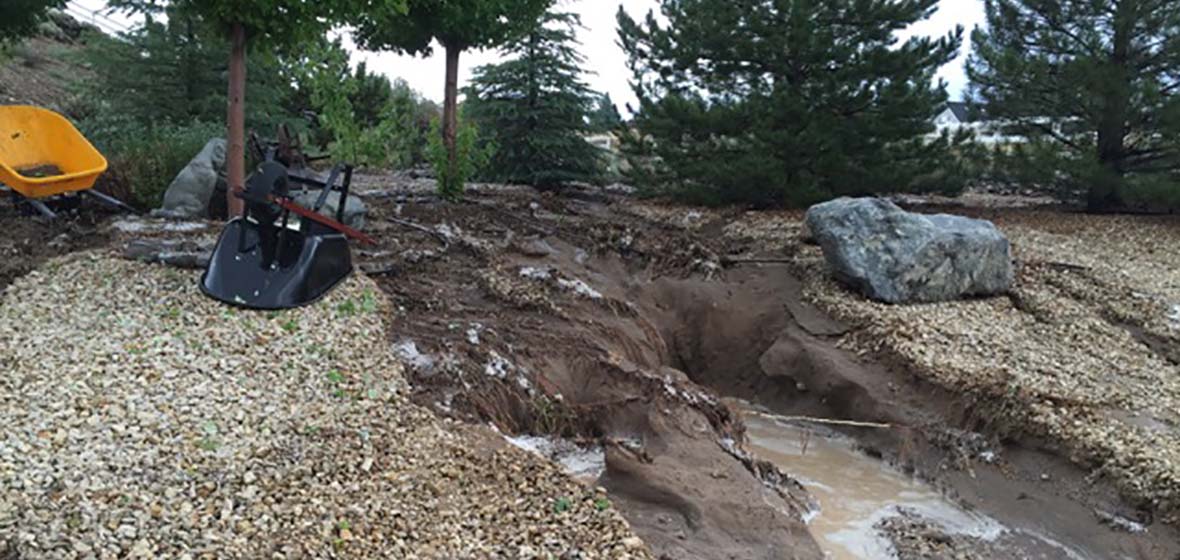During occasional heavy rainstorms, such as the ones that hit western Nevada this winter, stormwater can cause erosion on residential properties. University of Nevada Cooperative Extension, in partnership with GreenACTnv, will offer a free presentation on how to prepare landscapes to reduce erosion hazards and increase the potential for storm runoff to soak into soils. The workshop is 6 p.m., June 14, at the Douglas County Cooperative Extension office, 1325 Waterloo Lane in Gardnerville. Presenters include Extension Water Resource Specialist John Cobourn, Geologist Matt McMackin and retired Forest Service Hydrologist Larry Schmidt.
"We sometimes get long rainstorms in the winter and even more intense thunderstorms in the summer," said Cobourn. "If these storms cause rills or gully erosion on your land, you can take steps to reduce negative impacts and turn the rainfall into a benefit for your plants."
In addition to runoff from the rooftop and pavement, water can sometimes flow onto property from uphill adjacent properties. Such problems can be severe during occasional flash floods from thundershowers. McMackin and Schmidt will suggest ways that neighbors can work together to reduce impacts to their homes and neighborhoods.
Participants are invited to email photos of erosion or drainage problems on their properties, along with a simple site plan to show where the problem areas are located. In this way, the instructors can address specific problems being encountered in the area.
"Controlling erosion and directing runoff into the ground have many benefits for the whole community," Cobourn said. "Not only can people reduce flooding for neighbors downstream, but they can also reduce the amount of sediment pollution washing into our local waterbodies, such as Lake Tahoe or the Carson River."
For more information, contact Douglas County Extension Educator Steve Lewis at lewiss@unce.unr.edu or 775-782-9960. Persons in need of special accommodations or assistance should call at least three days prior to the workshop.












